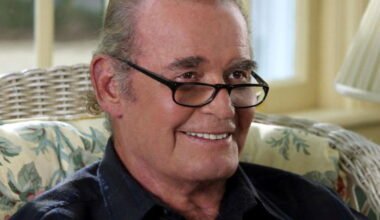Updated on: August 11, 2025
Basic Information
| Field | Details |
|---|---|
| Name | Dellsena Spencer (née Owens) |
| Born | 1945 |
| Died | 1988 |
| Known for | Mother of actress Octavia Spencer; raised a large family under difficult circumstances |
| Occupation | Worked as a maid and held various small jobs to support her children |
| Children | Octavia Spencer and at least five other siblings (reported as five sisters and one brother in total) |
| Parents | Jessie Owens and Sarah Fitzpatrick (genealogical records) |
| Public profile | Remembered in interviews and profiles about her daughter for her work ethic and influence |
Backstage origin — a life sketched in small, steady gestures
I like to think of Dellsena Spencer as the kind of off-screen hero you only get a whiff of in a great film: a woman whose labor is the soundtrack of a household — clinking dishes, the hum of a mop, the hush after a long day when everyone finally eats. Born in 1945, she became the axis of a family that would, decades later, sit beneath Hollywood lights when her daughter’s name was called. That arc — from everyday survival to awards-season triumphs above her — feels cinematic because it’s so human: quiet, patient, relentless.
Dellsena’s story isn’t headline-grabbing. It’s the kind of biography you read between the lines of someone else’s success. She worked as a maid and in other small jobs to keep the lights on and to give six children the room to grow. Those two numbers — 1945 and 1988 — bracket a life that, while not widely chronicled, left a tangible imprint: lessons on work, resilience, and how to keep hope alive when the ledger is thin.
The ledger of ordinary bravery — work, single motherhood, and timing
Let’s talk about logistics, because they tell the stubborn truth of a life: single mother, multiple jobs, six children. That equation is an education in endurance. You don’t need a Hollywood montage to understand what it meant to be Dellsena in the 1960s–1980s landscape of limited opportunity for many women of color — you only need to imagine long shifts, early mornings, and the constant jigsaw of childcare and paychecks.
Octavia Spencer has spoken about lessons learned from her mother — the economy of time, the dignity of honest labor, the uncompromising requirement to look after family no matter what. Those lessons translated into a moral vocabulary that Octavia would later carry onto stage sets, audition rooms, and red carpets: humility as ballast, ambition as craft. In that sense, Dellsena’s work was more than wage-earning — it was school.
Family portrait — siblings, loss, and the shape of a household
Families read like ensemble casts, and Dellsena’s household was no exception. Octavia is one among at least six children — five sisters and one brother — a busy constellation where roles were shared and responsibilities multiplied. Ribbed through the decades: laughter at small victories, friction over scarce resources, the protective hush when hard times came. When Octavia’s father died during her teenage years, the center of gravity shifted even more onto Dellsena; she carried the household forward while raising children who would learn survival by example.
If you were to draw a table of influence, Dellsena would be labeled “steady” and “practical,” with columns marked “work ethic,” “sacrifice,” and “quiet counsel.” Her parenting style — practical and persistent — became the scaffolding for children who would go on to live public lives, even as she herself remained private.

Dates and markers — a compact timeline
| Year | Event |
|---|---|
| 1945 | Birth of Dellsena Owens (later Spencer) |
| 1960s–1980s | Years of raising a large family while working as a maid and taking various small jobs |
| c. late 1970s–1980s | Period during which Octavia and siblings grew into adulthood; father’s death during Octavia’s teen years reshaped household responsibilities |
| 1988 | Dellsena Spencer’s death |
Each date is a waypoint. None of them captures the thousands of ordinary acts that add up to parenthood — the lunches packed, the shoes mended, the hospital waiting rooms — but taken together they sketch a life spent in service to family.
Legacy — how quiet influence becomes public story
Here’s the cinematic pivot: a daughter whose talent becomes a public mirror for a mother’s private sacrifices. Octavia Spencer’s rise — from modest beginnings to Academy recognition — rewrites the family’s economics without erasing the earlier texture. Dellsena didn’t live to see all of the milestones that followed, but her imprint is visible in the language Octavia uses when she talks about home: gratitude, groundedness, and an insistence on work done well.
That legacy is complicated and beautiful. It’s not the tidy moral of a movie; it’s the stubborn reality that one generation’s quiet choices can create the conditions for another’s out-loud success. In interviews and remembrances, Octavia returns to her mother’s lessons like a lead actor who keeps going back to a favorite scene — to rehearse, to remember, to credit.
What remains public and what stays private
There’s a certain dignity in absence. Dellsena’s life does not live in extensive archives, glossy profiles, or active social feeds; instead, it resides in memory and in the ethics of her children. That privacy is itself a character trait: a refusal of spectacle. And, I admit, it has a kind of elegiac power — the idea that the most meaningful lives are not always the most documented.
FAQ
Who was Dellsena Spencer?
Dellsena Spencer (née Owens) was born in 1945 and is best known as the mother of actress Octavia Spencer, raising a large family while working in domestic jobs.
When did Dellsena Spencer die?
Dellsena Spencer died in 1988.
What kind of work did she do?
She worked as a maid and held various small jobs to provide for her children and keep the household running.
How many children did she have?
She raised at least six children — Octavia and five siblings (reported as five sisters and one brother).
How did Dellsena influence Octavia Spencer?
Octavia has credited her mother with instilling a strong work ethic, resilience, and the practical lessons that shaped her character and career.
Did Dellsena receive public recognition during her life?
No; her recognition has primarily come posthumously through stories and interviews about her daughter’s life and career.
Who were Dellsena’s parents?
Genealogical records list Jessie Owens and Sarah Fitzpatrick as her parents.
Was Dellsena married or a single mother?
She is most often described in family accounts as a single mother who managed household support through paid work.






